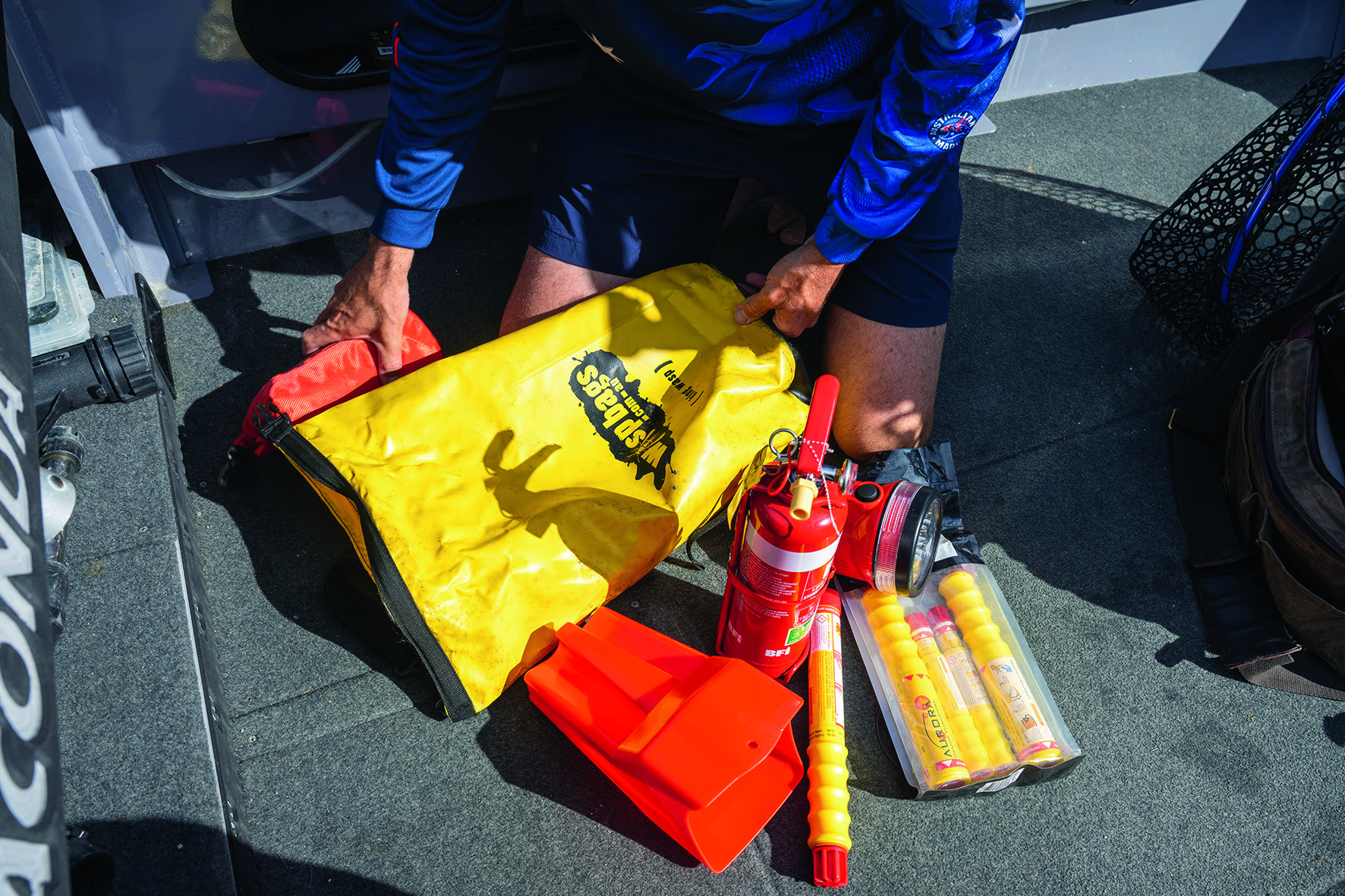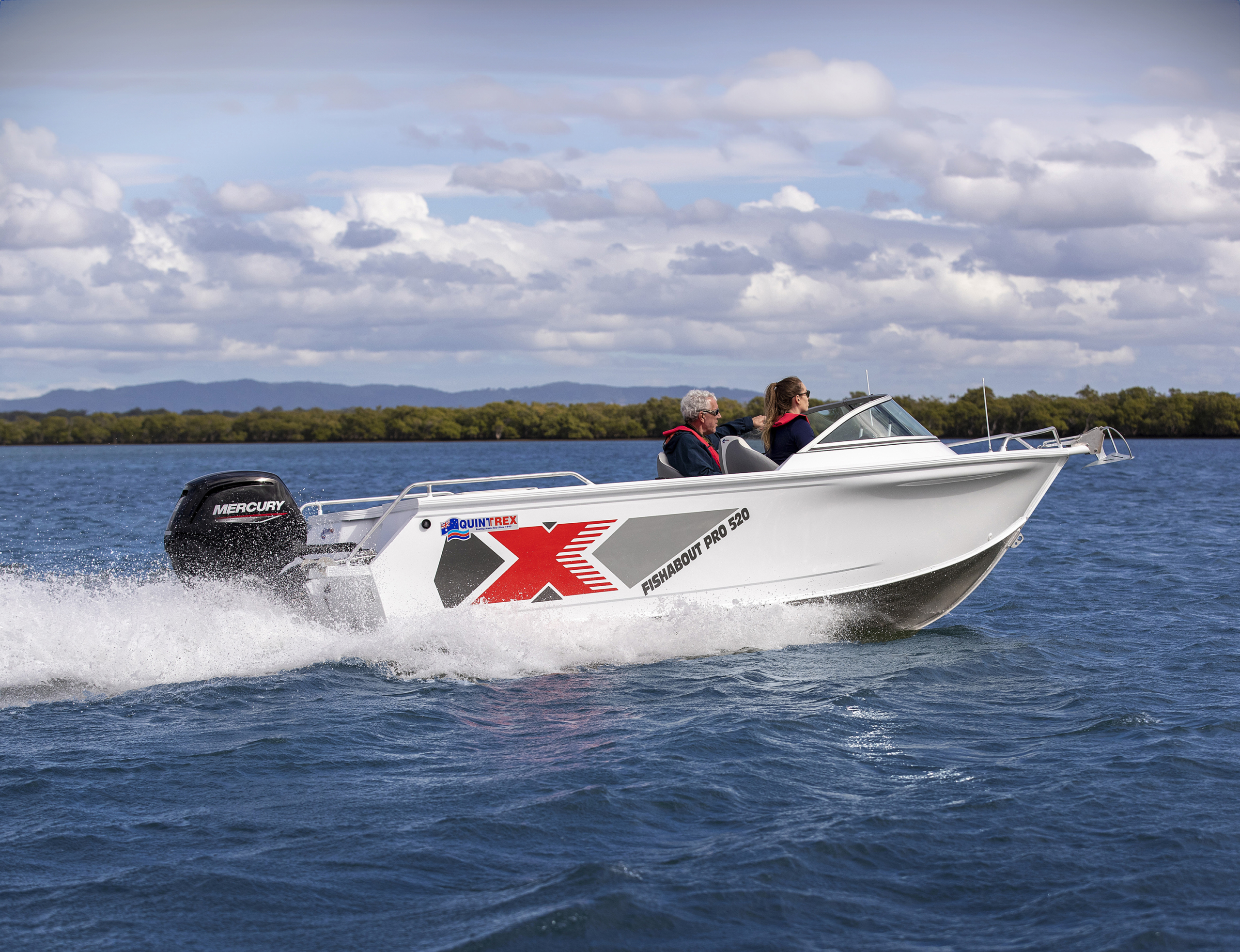
Three boating safety experts share some key advice to help you stay safe during peak boating season.
David Watson, Recreational Boating Safety Officer, Marine and Safety Tasmania (MAST).
With the warmer weather approaching, many of us are eager to spend more time on the water. Whether you’re anchored in a sheltered bay, fishing offshore, or cruising along the coast, safety should always be at the heart of your plans. Taking a few simple precautions will help ensure your day on the water is memorable for all the right reasons.
- Ensure your vessel is equipped with all the necessary safety equipment for the trip you are undertaking. Keep it accessible, regularly check its condition and make sure you know how to use it. Some items, such as lifejackets, need periodic servicing. Others, like EPIRBs, require registration with AMSA. Keep your details up to date and check the battery expiry dates.
- Every waterway presents its own hazards – changing environmental conditions, busy traffic areas or hidden obstructions. Maintaining a constant lookout is crucial for your safety and that of others on the water. Swimmers and small paddle craft can be especially hard to spot, particularly at speed or in rougher conditions. Always follow speed limits and be aware of the rules for passing other vessels and swimmers. When navigating unfamiliar areas, watch carefully for navigation markers or hazards. If in doubt, slow down, check your position and assess the depth.
- Boating regulations differ between states and waterways. Licence requirements, mandatory safety equipment, speed limits and restricted areas can vary. Take the time to check the local rules before you head out.
- Know your limits. Consider both your own experience and your vessel’s capability. Early in summer, many people are using their boats for the first time in months – or are heading out in a vessel they don’t yet know well. Take time to get familiar with your boat’s handling traits and layout before you become too adventurous.
- Check the weather and tides; this is crucial when planning a voyage, whether you’re on a paddle craft near the coast or heading further offshore on a larger vessel. We’re fortunate to have access to very accurate weather information nowadays. It helps greatly in planning a trip and making the most of the best weather conditions. Be aware of how conditions might change while you are out and how that could impact your trip. Check the tides; not only can water depth be a concern in some areas, but tidal flow can also significantly change sea conditions in certain locations.
- Let someone know the details of your trip before you head out. At a minimum, share your departure time and location, who is on board, a description of your vessel and your expected time of return. This information can greatly assist authorities in an emergency.
- Be respectful of others – whether at sea, in sheltered waters, or at the boat ramp. Follow navigation rules and maintain the required distances from marine life, such as whales, dolphins, and turtles. At launching facilities, prepare your boat in advance so you spend minimal time on the ramp and reduce delays for others.
Adam Smith, President of the Boating Industry Association and Owner of Australian Boating College Sydney.
- Preparation is key during peak boating season. Boat ramps, wharves and marinas will all be busy. To avoid the stresses and risks that can come with boating at these times, consider planning your activities outside of these times to avoid or reduce the stress.
- Do whatever you can to be as prepared and planned out as possible. Knowing what to do and when, where everything is and who’s doing what can assist you with reducing stress and risk at these busy pinch points in your boating day. It may seem like overkill, but you’ll thank me later for your stress-free day on the water.
- Situational awareness is crucial. As you’d expect, the waterways will be busier, so you’ll need to be vigilant and ready to respond to risks posed by other vessels. Some boaters may not know the rules, or have an incorrect understanding of the rules, or simply be oblivious to your presence! Simply, don’t assume that other boats will do what is required to avoid a collision, or give way, when necessary.
- Unless you see that another boat is clearly doing what is required to avoid a collision, be ready to do what may be necessary for you to avoid a collision, irrespective of what the rules may say about who must give way. Similarly, make your intentions clear to other vessels when interacting. You’ll find that this can usually be done most effectively with a clear, deliberate and substantial change of course early on.
- Make sure you’re prepared and compliant with regulations and requirements. Peak boating season will usually also see more compliance activity from regulators, so make sure you meet all their requirements for safety equipment, licensing and registration.
- While boating licenses in Australia are issued by a state regulator, each state will recognise other state’s licensing. However, boating rules are different from state-to-state in Australia, so make sure that you are aware of the current rules for the state you’re in, whether it’s your home state or another if you’re travelling. A good way to do this could be to read through the Boating Handbook from the regulator for that jurisdiction. The best way to refresh your knowledge (in my slightly biased opinion) is to do a licence course with a training provider in your state.
- Consider refreshing or levelling up your skills with advanced training. Licensing requirements vary greatly across Australia and NZ. Some states mandate theory training and assessment only, others theory and practical, while some jurisdictions have no licensing requirements for recreational boating at all. If you haven’t been boating for a while, have recently upgraded your boat or are now boating in a new location, some additional training could be of value.
Consider arranging some 1-1 training on your boat, covering operations you’d like to improve your skills on. This could be launching and retrieving a trailer boat, berthing and departing a berth in a marina, operations underway or navigation skills. A training provider can tailor a session to suit your needs, and upgrading your skills will increase both your competence and confidence.
Dan Duemmer, Acting Deputy Commissioner, Marine Rescue NSW.
Heading offshore where land is barely visible is a favourite pastime for many sailors and experienced anglers. Losing sight of land can be very calming for some and, in the right conditions, having a 360° ocean view as far as the eye can see is one of the best experiences.
- To make heading offshore as safe as possible, you need to be aware of the risks, know what equipment to carry and understand how to use it. Planning and preparation are key, but knowing what to do and how to reduce your risks is fundamental when heading off our coastlines.
- Understand the limits: monitor and recognise when your communication equipment reaches its range (first your mobile phone, followed by your marine VHF radio). Know what you would do in this situation and how far you would need to travel to get back in range. It is also important to understand your own level of comfort, experience and familiarity when offshore. Take your time to build this experience if you are not confident – take baby steps. Finally, know your vessel’s capability: fuel consumption, whether it is built fit for purpose, its service history and any known faults.
- Practise and understand key offshore safety procedures. It’s important to have practised, or at least talked through, processes that may arise while offshore. Basic first aid knowledge is essential, as is knowing how and when to use your safety equipment – flares, EPIRB, sea anchor and V-sheet. It is no use setting off all your flares at once if no one is around to see them.
Emergency protocols should also be understood, such as making Mayday and Pan-Pan calls over the radio. Have you ever considered how you would retrieve someone from the water at sea in wind and swell? Don’t wait until it happens before thinking through your response.
- Even simple navigational skills can make a big difference. For instance, if you lose all electronics off the coast in NSW, land will always be to the west. By using a magnetic compass, you can work out which way west is. Once in sight of land, a paper chart can help you identify prominent landmarks to determine your position. You may also regain phone reception by then. It is good practice to know your local coastal currents and prevailing wind patterns.
What’s your plan B? Discuss with your crew what you will do if things don’t go to plan. If the weather changes, when will you call it, and where will you head for safety? Do you have a grab bag packed with essentials (EPIRB, handheld VHF, water, rations and signalling gear) in case you need to abandon the vessel? What will you do if someone is injured or becomes seasick?
If you suffer mechanical or equipment failure, is your home port the closest and safest option? All of these things are easy to prepare for and can be as simple as a conversation with your crew while heading out. It is far better to have these discussions in calm conditions than in a high-stress situation.
- Finally, while at sea, keep a proper lookout, always wear a lifejacket, monitor weather conditions, stay hydrated and manage fatigue. Don’t forget to log on with your local Marine Rescue base and, if you find yourself in an emergency, call for help immediately via Triple Zero (000) or VHF Channel 16.
For boating news, features and interviews, subscribe to Nautilus Marine Magazine here.
